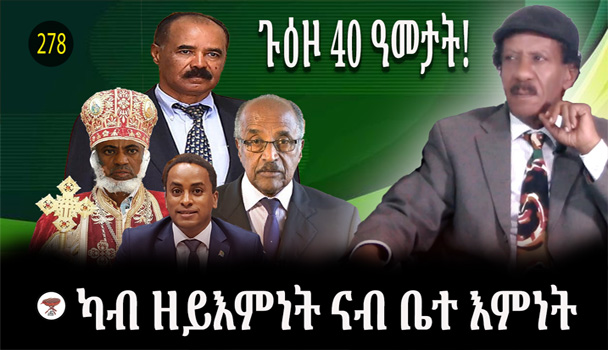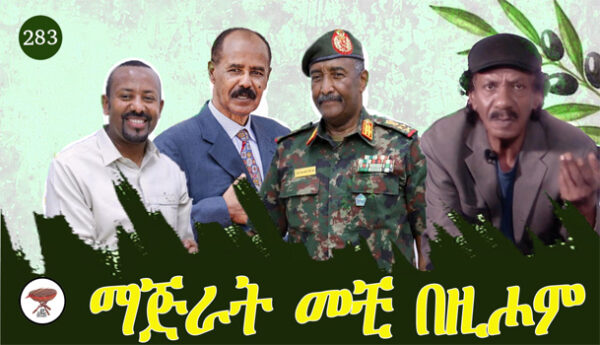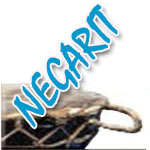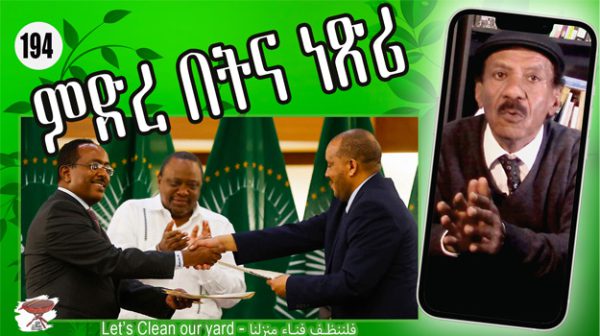A 40-Years Journey From Communism to Theocracy
Until mid-1970, the members of the liberation organizations were mainly from the countryside: innocent, traditional, honest, brave, and disciplined fighters. They had no qualms about sacrificing their lives for the cause of freedom and liberty. However, by the time of independence, combatants from the cities had increased drastically and they maintained a considerable presence, particularly in the leadership.
Gradually, the balance was lost within the ranks. It was worrying to the novices, let alone to veterans, whose minds were less corrupted by misinterpreted ideologies. It mainly corrupted the innocent and greatly replaced the beliefs of the ranks. Many veterans became disillusioned and slowly left the field, mainly heading towards Sudan.
I frequently visited Kassala on assignments. One time I stayed for a few weeks when my mother and siblings sought refuge in Kassala. I met many combatants strolling the streets, lazily killing time under the trees by the teashops. That is when I met the veteran who trained me. I was heartbroken when he said he had enough and was not returning to the field. Sarcastically, he told me, “I left the field for the progressives who banished God from the field.” That was the attitude of many who were bitter with the way things were going.
That reminded me of an ex-policeman who emptied his gun on a pot cooking over a stove of three stones—he was enraged because some “progressive combatants” killed a huge snake and were cooking it on the only pot the platoon had. The devout religious combatant found it disrespectful: “Eat anything you want, but don’t use our common pots; be a little sensitive.”
Most combatants from the cities didn’t mind experimenting with food: Helouf (Boer), turtles, and snakes. See, a few of us were squeezed between the rigid conservatives and the reckless liberals, a situation that continued after the independence of Eritrea.
Making fun of religion and badmouthing God was too common; peer pressure forced the young combatants to do anything just to be considered teqedumi, gesgasi, and progressive.
The Eritrean Mega Cult
Today’s Negarit was triggered by a recent statement issued by the Eritrean government. It contained a set of instructions on how Eritreans should commemorate “Sene 20 Martyr’s Day.” In addition to the sudden religiosity among the PFDJ, I thought it was a juicy topic. A title for a book came to mind: “The forty-year journey from Communism to Theocracy”, but it is copyrighted, just in case.
During the struggle era, most cadres avoided discussing religions, though they pretended to be atheists. After independence, however, reality sank in, and stories are abundant, though not fit for today. But mainly, it was as they, Halima rejeAt fi Halet’ha al qedima (Halima reverted to her old habits).
Over the last decade, as if society is atoning from its past sins, the young are professing extreme religiosity. Many are infatuated with religious symbols that show their sects and denominations. Still, large numbers are engaged in a religious war among themselves and shamelessly displaying their fanaticism. Is that patriotism or ultra-nationalism?
Such problems are too common to ignore, though they are treated as taboo or handled delicately, if not avoided altogether. It has become too common to see priests blessing violent partisan gatherings and agitational campaigns called by the supposedly secular parties.
But let’s stay with the PFDJ for now. Let’s talk about the recent PFDJ statement. I wonder what the PFDJ was thinking when it passed a religious fetus, a cannon, disguised as a statement.
Governments do not regulate or order fasting; maybe physical trainers and doctors can come close to that, but they call it dieting. But for the so-called secular PFDJ to proscribe fasting on a non-religious occasion is way out of line. Keep in mind the PFDJ is in the process of relearning religion, which they discarded many years ago. However, that only happens when people are aging and as the day of meeting God gets closer.
Here is my critique of the PFDJ cannon, the Fetwa, that was passed to Eritrean refugees in Addis:
- Since it mentioned those who live in Addis Ababa, does that mean refugees living elsewhere are exempt from that religious edict?
- Religious edicts have exceptions; what happens if a person breaks the PFDJ-proscribed fasting?
- Is the fasting ala Christian (avoid dairies; everything else is fine) or ala Muslim Ramadan (not a drop of water or food)?
- Will there be a festival after the end of fasting, like Eid or Fasiqa?
- How about Terawih as in Ramadan?
From Communism and Theocracy, PFDJ has either become a church or is on it’s way
Abraha Seghid’s song, Aslamay-Kstanay, was more eloquent and clearer; it’s a Mission Statement in a song. PFDJ threw that song away through the window and replaced it with the stale propagandistic mantra: two religions, nine ethnic groups… it was a lie and remains a lie.
I am not sure who edited the religious edict, but I think it was “Abba Yemane Gebremeskel”. And I am not sure if there is reaction (forget condemnation) from the clergy or Dar al-Iftaa. The hazy line between the government and religious institutions is now blurred as the two keep trespassing into on each other’s territories.
Here are some points, provided the PFDJ has the will and ability to ponder:
- why would a supposedly secular and politically inclusive system ignore the diverse religious heritage of Eritreans?
- Why would a government impose candle lighting ceremonies on Muslims who do not have candle ceremonies—and they only light candles when the power is off?
- Could it be that the PFDJ has taken people for granted to the extent that they have lost all sensitivities regarding people’s beliefs?
- Do they consider Eritrea to be a diverse multi-ethnic and multi-religious country or a melting pot where every citizen assimilates to the culture and traditions of the ruling party’s choice?
It is possible that the UAE rulers have influenced the PFDJ. The UAE mufti general, Amir AlMoumineen, and Sheik Hamad bin Zaid of the UAE pretend to be an Abassid Caliph, a European Pope, and a Rabbi. He wants Christians, Jews, and Muslims to unite under a brand-new religion called Abrahamic Religion (in the singular).
Wealth brings along arrogance and illusion, and many are familiar with the story of an Egyptian Pharoah who declared himself god.
Eritrea is in a seriously risky road and it’s prudent that the PFDJ remember the saying: “give them an inch, they take a mile”. But they have already taken an inch and a mile; they are aiming at a marathon length.
Difference between Fasika (Easter) and Martyrs’ festival as per General Sebhat.
Once Easter and Martyr’s Day coincided, a man said he was celebrating both. General Sebhat, an able orator, chastised him, explaining that Martyrs’ Day takes precedence over Easter. “but we have been celebrating Easter long before Martyrs’ Day!”
The worst damage that happened to Eritrea was the transplanting of struggle-era culture through social engineering and replacing the tradition altogether instead of reforming or modernizing it. Still, today, as Eritreans look towards modernity and personal freedoms, sadly, a few are strongly anchored to the past and want to pull everyone into the dull culture of silence and self-doubt. Knowingly or unknowingly, the PFDJ is pushing Eritreans towards the dark ages.





Awate Forum